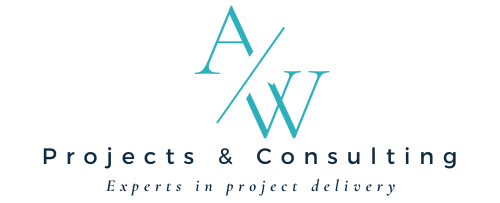Navigating Project Success: The Crucial Role of Stakeholder Management
In the intricate world of project management, stakeholders are not just passive observers—they are active participants whose engagement can make or break project success. Effective stakeholder management is essential for aligning interests, managing expectations, and fostering collaboration throughout the project lifecycle. This article explores the pivotal importance of stakeholder management, the potential pitfalls of poor management, and actionable tips to excel in this critical aspect of project execution.
The Importance of Stakeholder Management
- Alignment of Objectives and Expectations:
- Engagement: Engaging stakeholders early and consistently ensures alignment with project objectives, scope, and desired outcomes. It establishes a shared understanding and commitment to project success.
- Communication: Effective communication with stakeholders fosters transparency, builds trust, and minimizes misunderstandings. It enables stakeholders to provide input, make informed decisions, and support project initiatives.
- Support and Resources Mobilization:
- Advocacy: Engaged stakeholders can advocate for the project within their respective spheres of influence, securing necessary resources, approvals, and support.
- Resource Allocation: Proper stakeholder management helps prioritize resource allocation based on stakeholder priorities and strategic objectives, optimizing project outcomes.
- Risk Identification and Mitigation:
- Feedback Loop: Stakeholders provide valuable insights and feedback that help identify risks, anticipate challenges, and implement proactive mitigation strategies.
- Issue Resolution: Addressing stakeholder concerns promptly and effectively prevents issues from escalating, minimizing disruptions to project progress and stakeholder satisfaction.
- Enhanced Project Credibility and Acceptance:
- Endorsement: Stakeholder buy-in and endorsement enhance project credibility and acceptance. It increases the likelihood of successful project implementation and adoption.
Potential Consequences of Poor Stakeholder Management
- Misalignment and Resistance:
- Confusion: Lack of stakeholder engagement or miscommunication can lead to misalignment of expectations, resulting in resistance to project goals and decisions.
- Delays: Stakeholder opposition or disengagement can cause delays in approvals, resource allocation, and project execution timelines.
- Loss of Trust and Support:
- Reputation: Poor stakeholder management erodes trust and damages relationships with key stakeholders. It jeopardizes future collaboration and support for organizational initiatives.
- Resource Constraints: Without stakeholder support, securing necessary resources, funding, and approvals becomes challenging, hindering project success and sustainability.
- Increased Project Risks:
- Unforeseen Challenges: Ignoring stakeholder perspectives or concerns increases the likelihood of overlooking critical risks and vulnerabilities in project planning and execution.
- Escalation: Unresolved stakeholder conflicts or grievances can escalate, leading to legal disputes, reputational damage, and project failure.
Tips for Effective Stakeholder Management
- Identify and Prioritize Stakeholders:
- Tip: Conduct a stakeholder analysis to identify key stakeholders, their interests, influence, and potential impact on the project. Prioritize engagement based on their level of involvement and significance.
- Develop a Communication Strategy:
- Tip: Create a tailored communication plan that outlines how, when, and what information will be shared with stakeholders. Use multiple channels to reach diverse audiences effectively.
- Engage Early and Continuously:
- Tip: Involve stakeholders from the project’s inception. Seek their input, address concerns, and keep them informed throughout the project lifecycle to maintain engagement and alignment.
- Manage Expectations Proactively:
- Tip: Set realistic expectations regarding project goals, timelines, and outcomes. Provide regular updates on progress, milestones achieved, and any deviations from the plan.
- Seek Feedback and Input:
- Tip: Encourage stakeholders to provide feedback and suggestions. Actively listen to their perspectives, incorporate valuable insights into decision-making, and demonstrate responsiveness.
- Resolve Conflicts and Issues Promptly:
- Tip: Anticipate and address conflicts or issues among stakeholders promptly and constructively. Use mediation or negotiation techniques to find mutually acceptable solutions.
- Celebrate Achievements and Milestones:
- Tip: Acknowledge and celebrate project milestones and successes with stakeholders. Show appreciation for their contributions and support to foster positive relationships.
- Evaluate and Adapt Strategies:
- Tip: Regularly evaluate stakeholder engagement strategies and adjust approaches as needed. Learn from experiences to enhance future stakeholder management practices.
Conclusion
Effective stakeholder management is integral to project success, influencing project outcomes, stakeholder satisfaction, and organizational reputation. By prioritizing engagement, communication, and responsiveness, project managers can mitigate risks, harness opportunities, and foster a collaborative environment conducive to achieving project objectives. Implement these tips to cultivate strong stakeholder relationships, navigate challenges with agility, and deliver projects that meet stakeholder expectations and drive organizational success. Remember, proactive stakeholder management is key to building trust, enhancing project credibility, and securing support for future initiatives.







